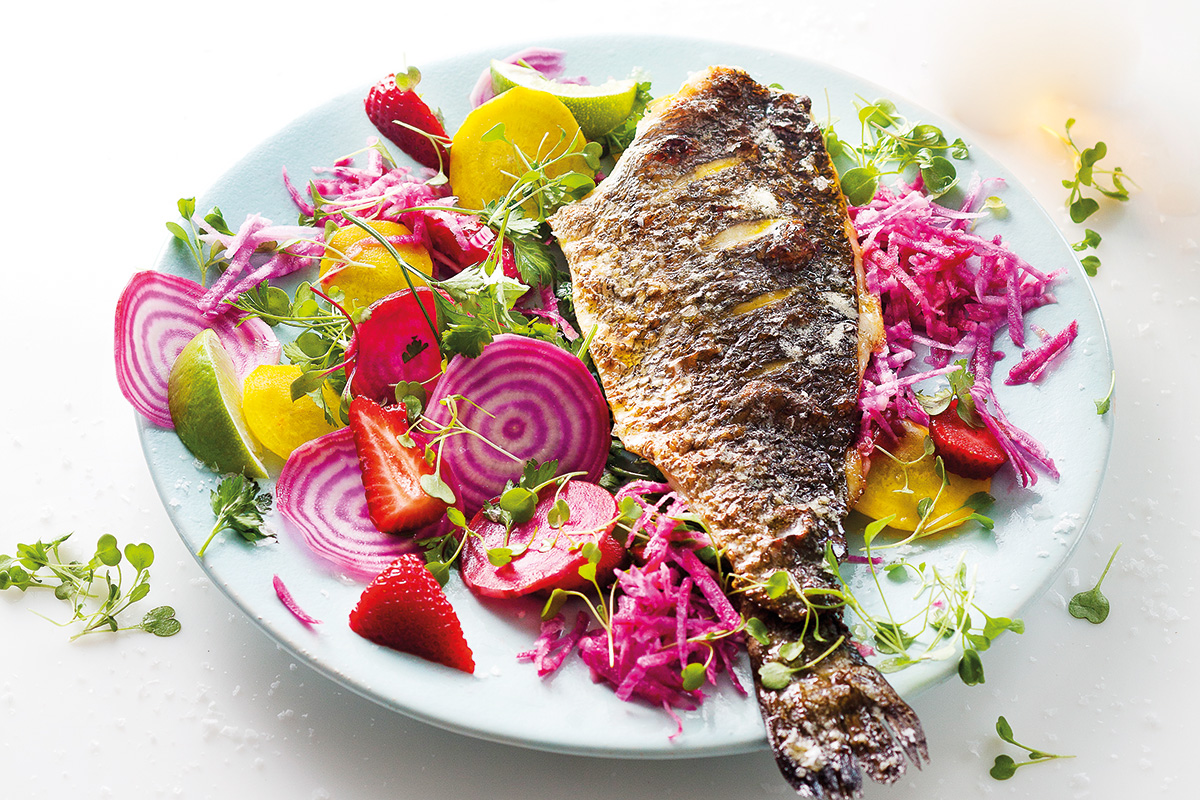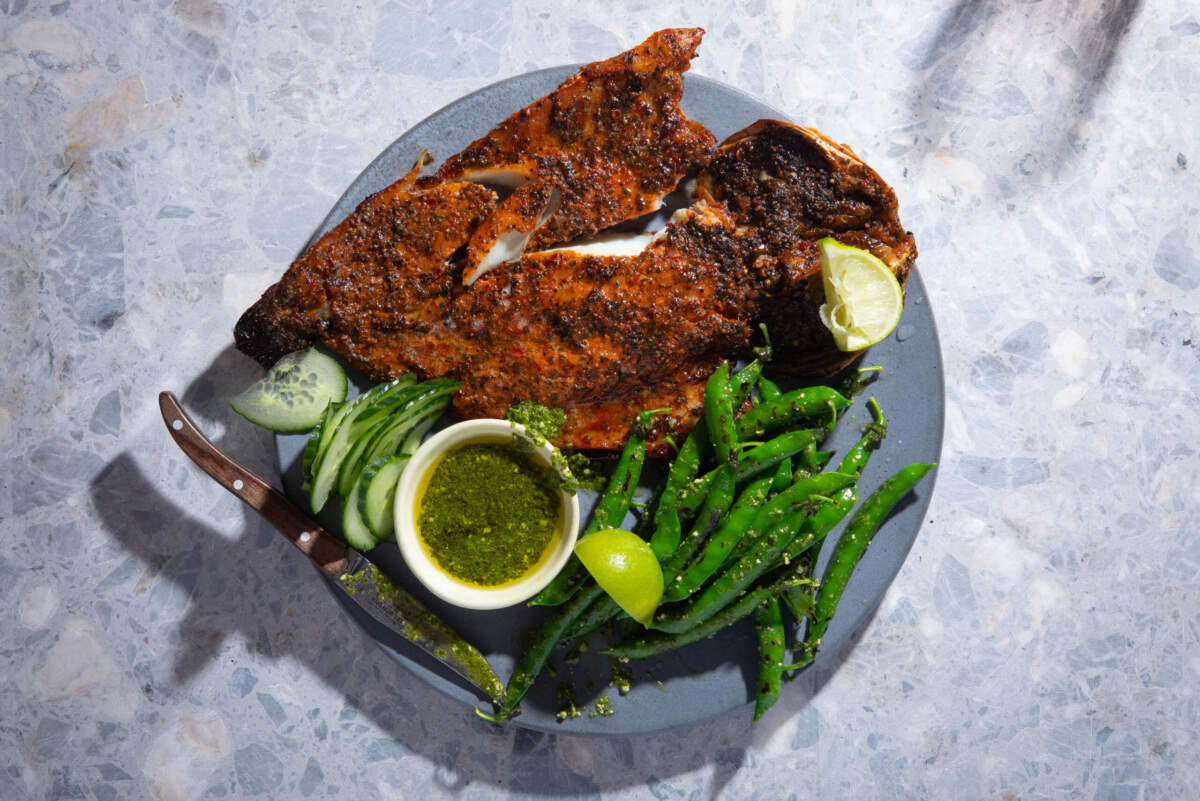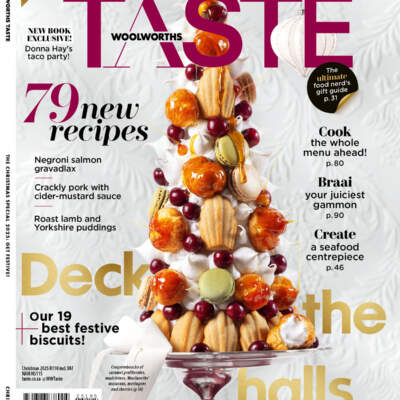Buying fish? Here are some things to consider
Now, more than ever, the food choices we make go beyond flavour. It’s important to know how our food is sourced and where from. Andre Bok, General Manager of Kingfish Enterprises, explains the ins and outs of sustainable fishing and why Kabeljou should be your fish of choice this year.
We love the versatility of dusky kob (also known as kob or kabeljou) – braaied, grilled or gently fried. Farmed fish has a higher fat content than wild-caught, and farmed kob is particularly high in Omega-3 healthy fats, which means it stays firm and juicy when cooked.
The kob population has been severely depleted through overfishing and estuarine degradation, and the species has been evaluated as endangered on the IUCN Red List (2020). The South African Sustainable Seafood Initiative (SASSI) list is a simple rating system designed for consumers so they can easily assess the sustainability of the fish they wish to consume. The SASSI list indicates whether a fish is red (don’t consume), orange (try and avoid it) or green (best choice). Kob is red-listed when wild-caught, but farmed kob is on the green list, making farmed kob from Kingfish Enterprises one of the best choices of fish for the discerning consumer.

Kingfish Enterprises is a land-based marine fish farm that controls the production of its fish from egg all the way to harvest size through recirculating aquaculture systems. This system gives the company the capacity to produce 300 tons of fish a year, ensuring a year-round supply of top-quality fresh fish that is sustainably produced.
The recirculating aquaculture system uses live probiotic bacteria to treat any waste that comes from the fish. They have to look after the biofilter just as well as they look after the fish, so no hormones or antibiotics go into the production system. An unbroken cold chain ensures that the quality of the product always meets the high standards of their customers. Wild-caught fish can sit on the deck of a boat for quite some time before reaching the shore, whereas their fish comes out of the tanks and straight into ice slurry, which results in a firm fish of the best possible quality and longer shelf life.
For Andre Bok (general manager of Kingfish Enterprises), the successful farming of marine fish, currently unique on the African continent, represents an industry that is investing in the environmentally sustainable production of marine fish in South Africa.
Andre says, “I'm exceptionally proud of every single fish that comes out of this farm, and I'm always happy to share it with my friends and family.”
In the mood for fish? Here are two fantastic green-listed fish recipes to try:
Crispy yellowtail with chips
Shisanyama-style kabeljou
Prepare Woolworths' shisanyama-style kabeljou according to package instructions. Serve with traditional braai sides, such as pap, tomato-and-onion relish and potato salad. Or braai some fresh greens – we love green beans or peas in their pods – and top with basil pesto and a squeeze of lime juice.

Woolworths is fishing for the future. In its drive to support sustainable seafood, it is committed to only procuring and selling seafood from responsible sources. Every delivery of fish is measured and inspected to ensure optimal quality is delivered to the customer.




Comments